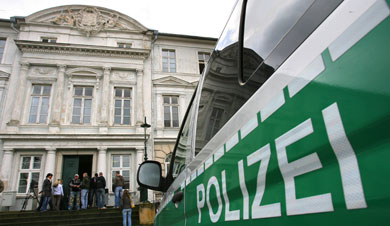According to the confidential report compiled by a working group on internal security, only 28 percent of people between the ages of 14 and 21 suspected of a violent crime actually have their cases brought to court.
In 16,000 of those cases, a sentence was handed down, although it was generally a suspended one. Of those suspects found guilty, 6,500 went to jail. Around one-third served up to a year; some 40 percent spent between one and two years behind bars. Only 1.4 percent served sentences longer than five years.
The report’s findings are due to be presented at an interior ministers’ conference in Brandenburg in mid-April. The report categorized as violent crimes aggravated assault, homicide and robbery.
The victims’ rights group White Ring criticized the high number of instances in which cases were dropped before suspects went to court.
“To victims, it’s like a slap in the face,” Veit Schiemann, spokesman for the group, told Der Spiegel.
However, he said toughening laws against youth offenders would be counterproductive, an opinion most criminologists also hold. He said existing laws and criminal procedures should be used more effectively.



 Please whitelist us to continue reading.
Please whitelist us to continue reading.